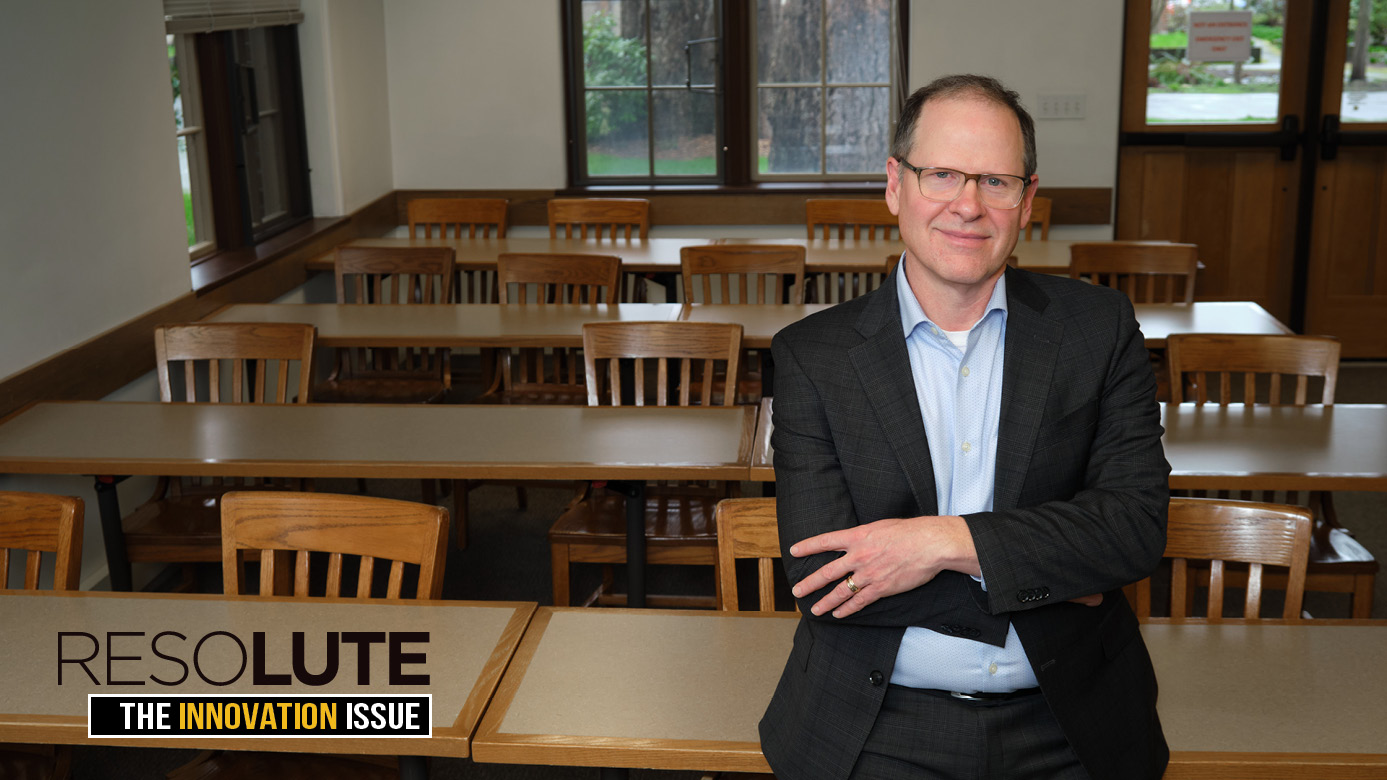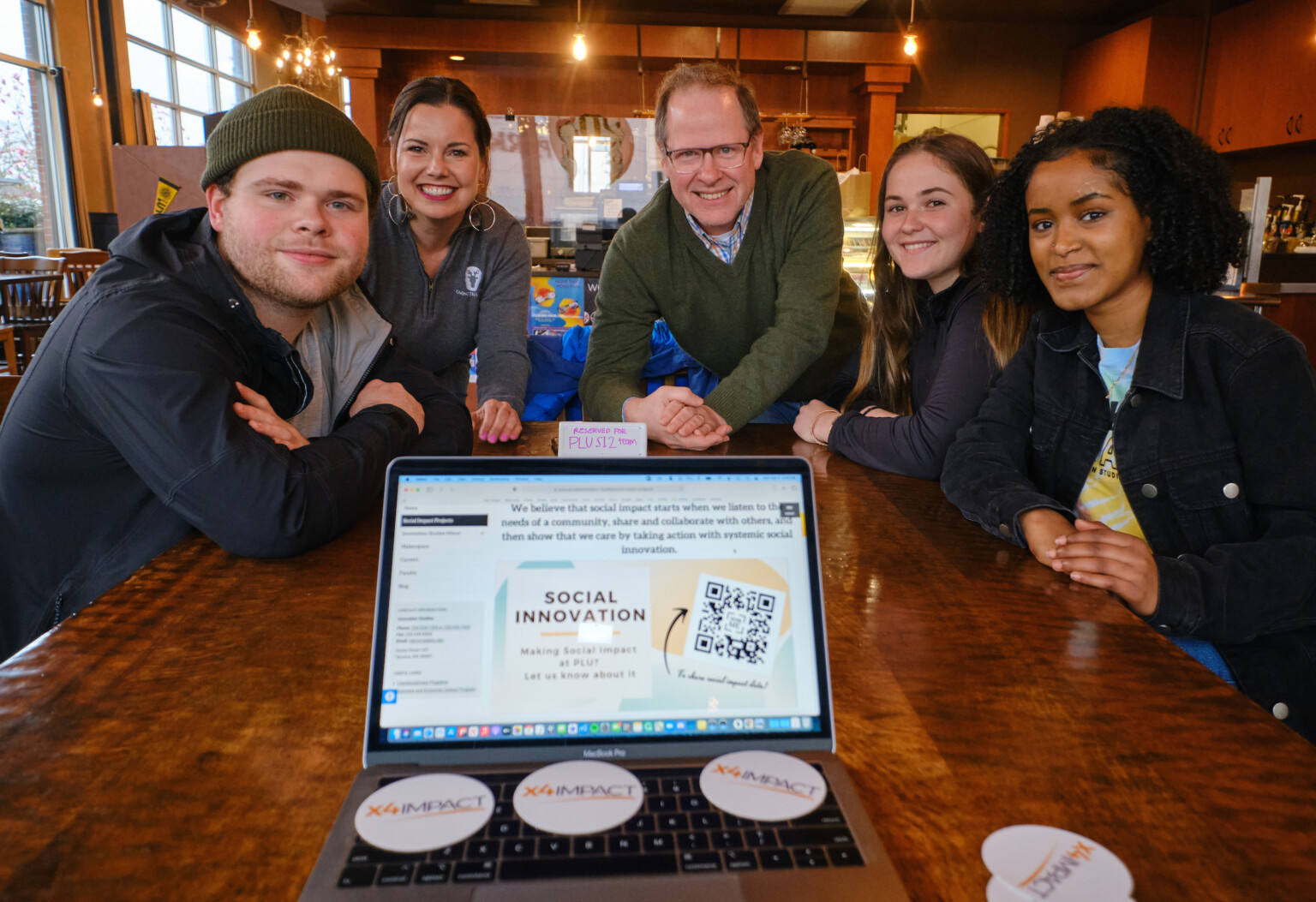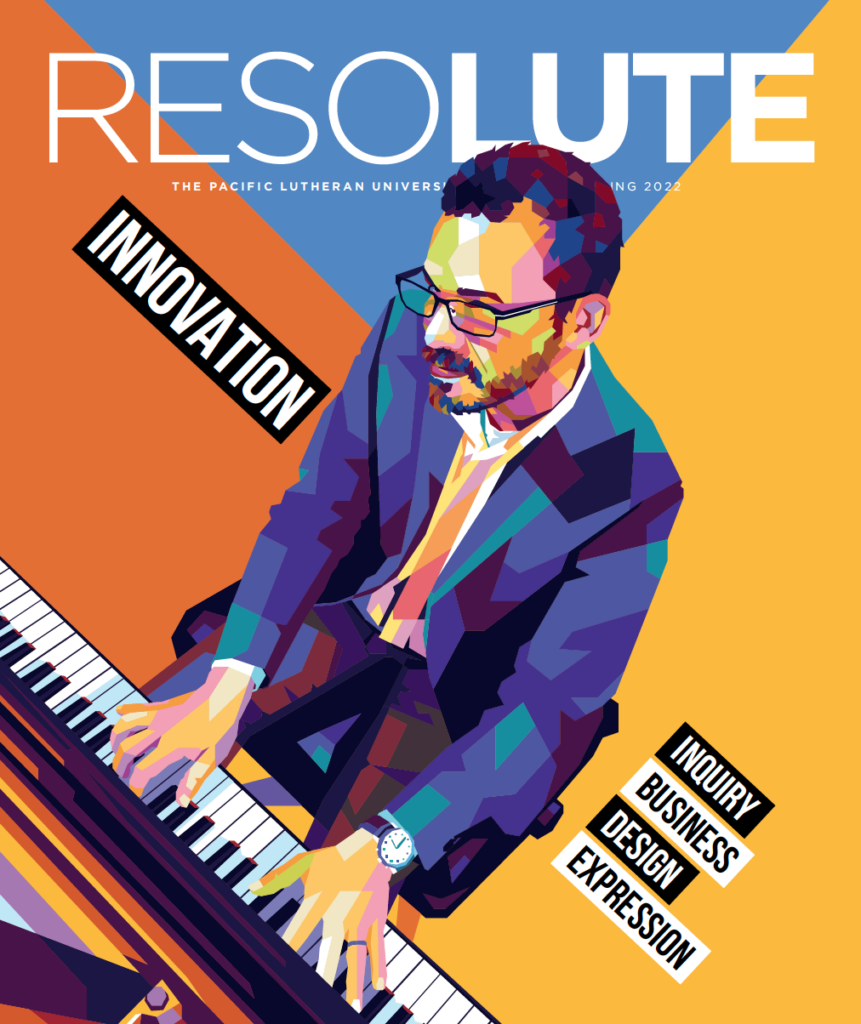The Key to Innovation
Innovation Studies program director Michael Halvorson discusses how understanding the past can unlock the future

By Zach Powers
ResoLute Editor
Michael Halvorson ’85 was a technologist before he was a historian. His PLU undergraduate degree is in computer science and he worked at Microsoft for the first 10 years of his career. He spent the next 15 years writing books about software and emerging technology. He went on to earn a Ph.D. in history from the University of Washington and he now serves as the Benson Family Chair in Business and Economic History at PLU.
Halvorson co-founded the innovation studies program and minor in 2016 and currently serves as the program director. Innovation is his passion, but Halvorson’s extensive knowledge of history fortifies his perspective.
“In our program we look at the long history of innovation, how people have created new things, and what the positive and negative consequences of those things have been over time,” he explains. “An analysis of innovation should look at human communities, economic issues, art & design, ethics, technology, and more. If you examine these elements in an interdisciplinary way, you can really assess the dynamics of change in society.”
Halvorson teaches business and economic history courses in the history department, as well as classes on innovation and the history of technology. He has also continued publishing books, including the lively new volume, Code Nation: Personal Computing and the Learn to Program Movement in America (2020).
I met with him on a rainy winter afternoon to discuss how he defines innovation, how it’s taught at PLU, and why studying history is critical to understanding the benefits and consequences of innovation.
Is it possible to define innovation in a single sentence?
I think so, let me try. Innovation is creating some new method or idea or product, and it is basically a creative act to do something new.
Wow, there it is. Straight forward and also exciting. I think it’s interesting that the study of innovation, for you, starts with learning from historical contexts.
Since WWII, nations around the world have focused on technological innovation, imagining that product development and new initiatives will boost their economies and measures like Gross Domestic Product (GDP). Innovation now is considered a positive thing, but it hasn’t always seemed beneficial. It used to be that new ideas were viewed cautiously or negatively by more conservative societies. In some cases there were laws against innovation, particularly religious innovation, because creatively exploring existing religious traditions felt threatening or revolutionary. It’s really only been in the last 75 years or so that innovation has been largely viewed as positive within society.
Generally speaking, how do students enter your classes thinking about innovation, and how do you and your colleagues in the innovation studies program look to expand that thinking?
Students usually think innovation relates to software or gadgets like their iPhones or electric cars. We do talk about the product development process that allows us to create those types of devices, but we also frame innovation as a creative act that anyone can try. We teach that all academic majors and career paths have the ability to benefit from design thinking and other creative mindsets that encourage problem solving. Students will learn to take their personal stories and passions and make them outward facing, so that they can creatively address local needs and global opportunities.
You mentioned earlier that innovation can have negative consequences. What’s an example?
An example would be the long history of automobiles in the U.S. We tend to associate automobiles with freedom and economic progress in America. Consider the technical efficiency of Henry Ford’s assembly line or the government’s forward-looking investment in our national highway system. However, we also needed to create oil refineries and corrosive products on a massive scale. Thousands of people have died in car crashes as we have worked out our driving standards, safety equipment, and appropriate regulations. In innovation studies we try to understand the benefits and consequences of innovation, so that future products and initiatives can be safer, more equitable, and beneficial to society.
What are a few books you’d recommend to a reader who wants to do some in-depth thinking about innovation?
To think more deeply about the meaning and purpose behind innovation, read Start with Why by Simon Sinek. If you’re interested in design thinking and supercharging your teamwork, read Change by Design, by Tim Brown, or Creative Confidence, by Tom and David Kelley.
What’s your advice to someone who is interested in becoming more innovative in their day-to-day life, or interested in seeing their world through a more innovative lens?
I think it can start with naming creative acts when you see them and when you try them. One part of innovation is creating something new, but it is equally important to improve existing systems and maintain what we already have. If you are volunteering at a local food bank and you see a new way to welcome clients or distribute food, kindly suggest it to the organization. Better yet, volunteer to form a group that walks through several existing processes within the organization from the perspective of a client in need. When you start with empathy and compassion, you’re most likely to make meaningful improvements. Innovation is not just for designers and engineers. It should be about everyday acts of grace and thoughtfulness that make the world a better place. This is why innovation studies is such a great fit for PLU and its creative blend of the liberal arts, professional studies, and community-oriented programs. At PLU, innovation is a direct outgrowth of our mission.




